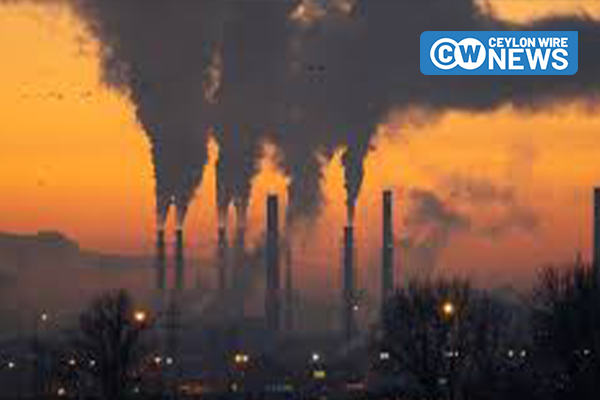A surprise improvement in air quality across South Asia in 2022 contributed to a global decline in pollution, likely driven by favorable weather conditions, according to a new report released on Wednesday. However, the region remains plagued by the world’s most polluted air, with residents losing an average of more than 3.5 years of life expectancy, the annual Air Quality Life Index (AQLI) warned.
Globally, most countries either lack pollution standards or fail to meet existing ones, exposing citizens to air quality that poses significant health risks. For the past two decades, air pollution in South Asia has been on the rise, but 2022 satellite data revealed an unexpected 18 percent reduction, the largest annual decline recorded in the region. The decrease was observed in all countries except Sri Lanka, according to the report from the University of Chicago’s Energy Policy Institute (EPIC).
“While it is difficult to conclusively determine what reduced PM2.5 levels across South Asia, it is safe to posit that favorable meteorological conditions may have played a part,” the report noted, referring to fine particulates that can deeply penetrate the human body. Above-average rainfall in 2022 and the widespread nature of the decline support this theory.
However, the report cautioned that air quality in South Asia remains eight times more polluted than the levels considered safe by the World Health Organization (WHO). “Only time will tell whether policy changes are having an impact,” it added, emphasizing the need for continued observations, policy enforcement, and monitoring of interventions.
The overall decline in South Asia contributed to a nine percent global drop in air pollution, even as poor air quality surged in regions like the Middle East and North Africa, where concentrations rose by 13 percent compared to the previous year. A persistent lack of air quality data is hampering effective policy-making and implementation, particularly in highly polluted countries.
“Countries with little or no air quality data often fall into a vicious cycle, where the lack of data results in minimal policy attention and investment, which in turn diminishes demand for data,” said Christa Hasenkopf, Director of EPIC’s Clean Air Program. To address this, EPIC launched a $1.5 million fund earlier this year to finance the installation of open-data air quality monitors globally.
Despite the severe health impact of air pollution, it receives relatively little funding compared to its effects. In some of Africa’s most polluted nations, air pollution poses a greater threat to life expectancy than HIV/AIDS, tropical diseases, malaria, or inadequate water, sanitation, and hygiene, the report highlighted.
There are positive developments, however, notably China’s success in combating air pollution through measures such as restricting cars in major cities, reducing heavy industry, and banning new coal plants in certain regions. Since 2013, China has reduced air pollution by 41 percent, meeting its national standards and extending the average life expectancy by two years. Yet, pollution levels in China remain over five times higher than WHO guidelines, with air quality uneven across major provinces.
Despite these efforts, the report emphasizes the urgent need for continued global action to address air pollution’s widespread impact on human health.








